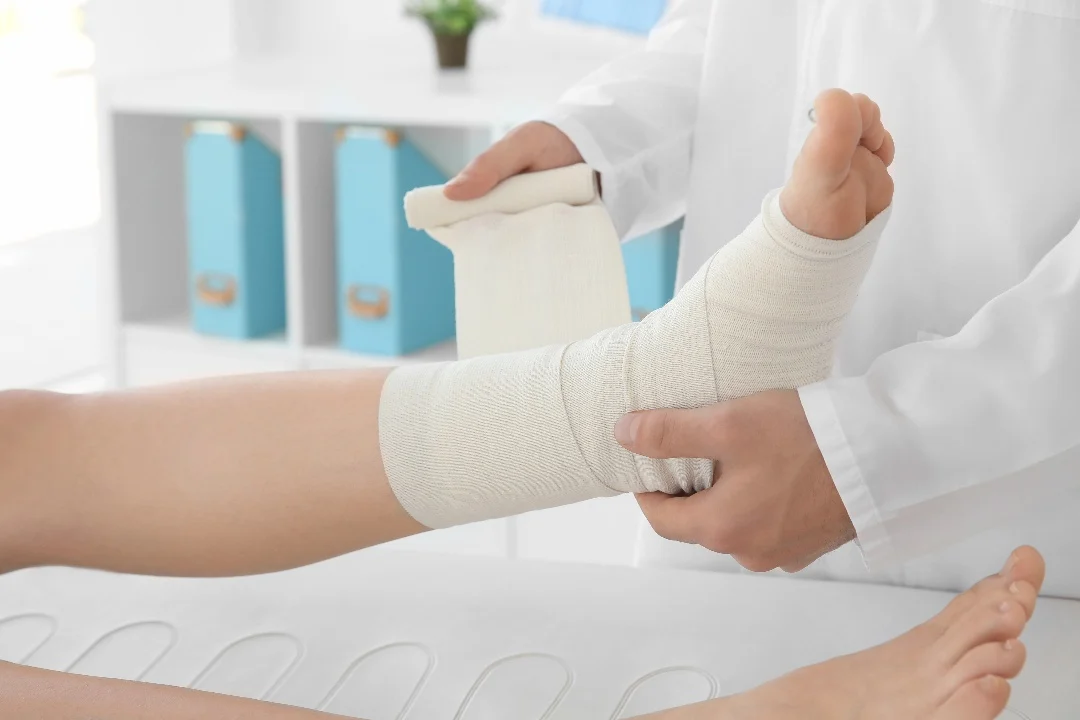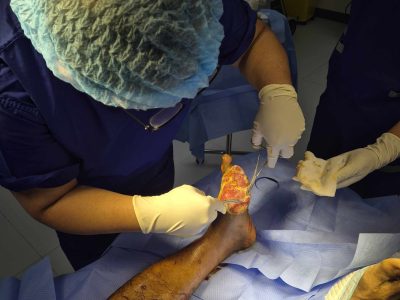What Is a Wound Doctor Specialist and Why Their Role Matters
A Wound Doctor Specialist is a medical professional trained specifically to evaluate, treat, and manage complex or non-healing wounds. These specialists go through rigorous training beyond general medical education to understand the science of wound healing and the latest techniques in wound care. Their expertise is often necessary when standard wound treatments aren’t effective or when a patient’s condition—like diabetes or circulatory problems—makes healing more difficult.
Unlike a general practitioner or nurse, a wound specialist can identify underlying issues that may delay healing and apply advanced therapies tailored to the patient’s needs. Their goal is to improve healing time, reduce pain, and prevent complications such as infection or amputation. The field of wound care is highly technical and constantly evolving, and these specialists stay up to date on the best practices through certifications and continuous education.
Their role is especially important for patients with chronic conditions. Wound Doctor Specialists not only treat the physical wound but also assess how a patient’s overall health, medications, nutrition, and mobility impact the healing process. This holistic approach improves outcomes significantly and can often prevent hospital readmissions.
Types of Wounds Treated by a Wound Doctor Specialist
Wound Doctor Specialists handle a wide variety of injuries, but their expertise shines in treating wounds that are slow to heal or prone to complications. These include chronic wounds such as diabetic foot ulcers, pressure ulcers (also known as bedsores), and venous leg ulcers. These wounds often persist for weeks or months and require specialized knowledge to heal properly.
They also treat post-surgical wounds that become infected or fail to close on their own. These can happen due to underlying health issues, poor circulation, or complications during recovery. In such cases, the wound specialist steps in to reassess the treatment strategy and accelerate healing.
Traumatic injuries like lacerations, abrasions, and puncture wounds may also need a specialist if they aren’t responding to initial treatment. Burns, both minor and severe, are another common focus area, especially when skin grafts are required or when large areas of skin are affected. Infections, drainage, odor, and tissue necrosis are clear signs that a more advanced level of care is needed.
Even seemingly minor wounds can escalate if untreated. This is particularly true for individuals with compromised immune systems. A Wound Doctor Specialist knows how to monitor these injuries, preventing them from becoming serious health risks.
Key Techniques and Tools Used by Wound Specialists
A Wound Doctor Specialist relies on a range of advanced tools and treatment methods to accelerate healing. One of the most effective is negative pressure wound therapy (NPWT), which uses a vacuum device to remove fluid and infection from the wound. This method promotes blood flow and encourages the growth of new tissue.
Debridement, the removal of dead or infected tissue, is another core technique. It can be performed surgically, enzymatically, or mechanically depending on the type and severity of the wound. Removing this tissue helps create an optimal healing environment and reduces the risk of infection.
For deeper or more severe wounds, hyperbaric oxygen therapy is sometimes used. This involves breathing pure oxygen in a pressurized environment to enhance the body’s natural healing abilities. Wound specialists may also use advanced dressings that release medication or manage moisture levels more effectively than traditional bandages.
Infection control is a high priority, especially with wounds that show signs of biofilm—a layer of bacteria that is resistant to standard antibiotics. Specialized dressings and targeted antibiotics help manage these infections. Some specialists also incorporate regenerative medicine techniques, such as growth factors or stem cell therapy, to further stimulate tissue repair.
Benefits of Seeing a Wound Doctor Specialist
Seeking help from a Wound Doctor Specialist can make a measurable difference in how quickly and safely a wound heals. One of the biggest advantages is reduced healing time. Since wound specialists create customized treatment plans, they’re able to focus on the exact needs of the wound rather than using a one-size-fits-all approach.
There’s also a significant decrease in the chance of infection or amputation, especially for diabetic patients or those with vascular problems. Specialists know what signs to look for early on, which allows for faster interventions before complications escalate. They also help patients manage related medical issues that could be interfering with recovery, such as poor blood sugar control or immobility.
Wound specialists often coordinate care with other providers, including primary doctors, surgeons, nutritionists, and physical therapists. This team-based approach ensures that every aspect of healing is addressed. Patients receive clear instructions, consistent follow-up, and access to resources that support long-term recovery.
Another benefit is the emotional and psychological support they offer. Living with a chronic wound can be mentally exhausting, and a dedicated specialist provides not just medical expertise but also empathy and reassurance throughout the healing journey.
When to Consider Seeing a Wound Doctor Specialist
If a wound is not healing within a typical timeframe—often around two to three weeks—it’s time to consult a Wound Doctor Specialist. Redness, swelling, pus, foul odor, and increasing pain are warning signs that the wound may be infected or deteriorating. These symptoms should never be ignored, especially in high-risk individuals.
Wounds that reopen after appearing to close, or those that don’t respond to traditional treatments, may have underlying complications such as poor circulation or neuropathy. A specialist can assess these contributing factors and adjust the care plan accordingly.
Anyone with diabetes, autoimmune conditions, or vascular disease should be particularly cautious. These patients are more prone to complications and often benefit from early specialist intervention. Pressure sores from long periods of bed rest, surgical incisions that separate, and burn injuries are additional scenarios where a specialist’s care is essential.
Even for smaller injuries, a visit to a wound specialist can prevent unnecessary complications. It’s always better to be proactive when it comes to wound care, especially when healing seems slower than expected.
What to Expect During a Visit
During your first appointment with a Wound Doctor Specialist, expect a comprehensive evaluation. This begins with a thorough inspection of the wound—its size, depth, color, and discharge are all carefully recorded. The specialist may also measure circulation levels or check for signs of infection using imaging tools or lab tests.
You’ll likely be asked detailed questions about your health history, medications, diet, mobility, and daily habits. These factors can impact how your body heals, and the doctor needs a full picture to create an effective treatment plan. The goal is to understand not only the wound itself but what’s contributing to its slow recovery.
From there, the specialist will develop a personalized plan that may include advanced therapies, regular wound cleaning, lifestyle adjustments, and education about at-home care. If needed, the specialist may recommend referrals to other professionals such as endocrinologists or physical therapists.
Expect ongoing monitoring with follow-up appointments. These visits are critical for tracking progress, adjusting treatments, and catching new issues early. Patients are encouraged to ask questions, share concerns, and participate actively in their healing process.
How to Choose the Right Wound Doctor Specialist
Selecting the right specialist makes a major difference in care quality and healing outcomes. Look for a provider who holds board certification in wound care from a recognized medical organization. This indicates they’ve met high standards of education and experience specific to wound management.
It’s also important to consider whether the specialist has experience with your specific type of wound. For example, a diabetic ulcer may require different knowledge and tools than a surgical wound or a pressure sore. Ask about the treatments they use, whether they offer advanced technologies, and what kind of facility they practice in.
Patient reviews can provide insight into a doctor’s communication style and reliability. Look for a provider who values collaboration, listens attentively, and explains options clearly. If you’re already seeing other medical professionals, ask them for referrals or check with your insurance network for covered providers.
Accessibility also matters. Consider how easy it is to get appointments, how close the clinic is to your home, and whether they offer telehealth or home-care options. These details can make ongoing care easier and more effective.
Costs, Insurance, and Accessibility
The cost of care with a Wound Doctor Specialist can vary depending on the complexity of the wound, the number of visits required, and the types of therapies used. Many insurance plans cover specialist visits if the wound is considered medically necessary. However, it’s best to confirm coverage with your provider to avoid surprise bills.
Some procedures, such as hyperbaric oxygen therapy or regenerative medicine, may require pre-authorization or have limited coverage. Out-of-pocket expenses can add up, especially for patients needing long-term care. Ask the clinic’s billing department to walk you through potential costs ahead of time.
For those without insurance, some hospitals and wound care centers offer financial assistance programs or sliding scale fees. Community clinics in larger cities may also provide low-cost or subsidized wound care. Telemedicine options are increasingly available, especially for follow-ups, reducing the need for travel.
Accessibility remains a concern in rural areas where specialists may be limited. In such cases, virtual consultations or regional referrals can help bridge the gap. Patients should not delay care due to distance or cost—timely intervention is key to avoiding more serious medical complications.
Frequently Asked Questions (FAQ)
How soon should I see a wound doctor if my wound isn’t healing?
If your wound hasn’t shown signs of improvement within 10–14 days or is worsening, it’s time to consult a wound specialist. Sooner intervention often leads to better outcomes.
Is a wound specialist the same as a dermatologist?
No. While both deal with skin-related issues, a wound doctor specialist focuses on wound healing and infection control, especially for complex or chronic wounds.
Do I need a referral to see a wound doctor?
Some insurance plans require a referral, while others don’t. Check with your insurance provider or primary care physician to determine what’s needed.
What kind of wounds are considered chronic?
Chronic wounds are those that do not heal within the expected time frame, usually within 30 days. These include diabetic ulcers, venous ulcers, and pressure sores.
Can a wound doctor help if I have multiple health issues?
Absolutely. Wound Doctor Specialists are trained to manage complex cases and often coordinate with other providers to ensure safe and effective care.







